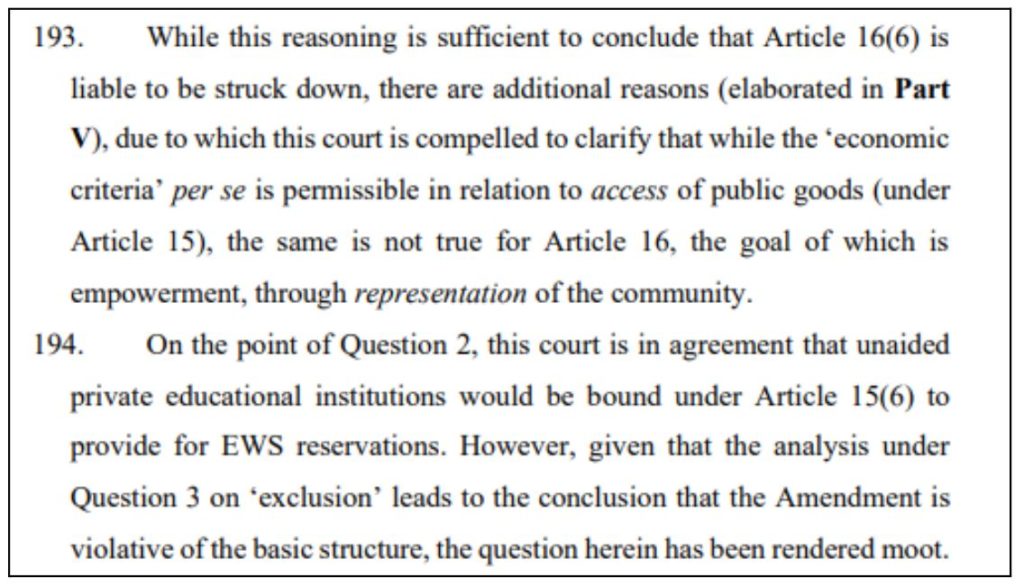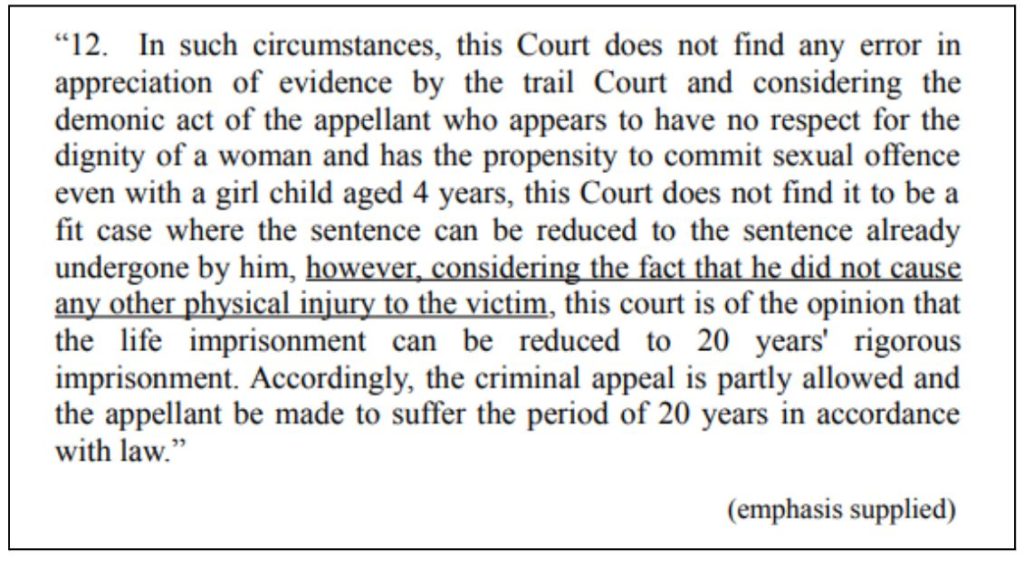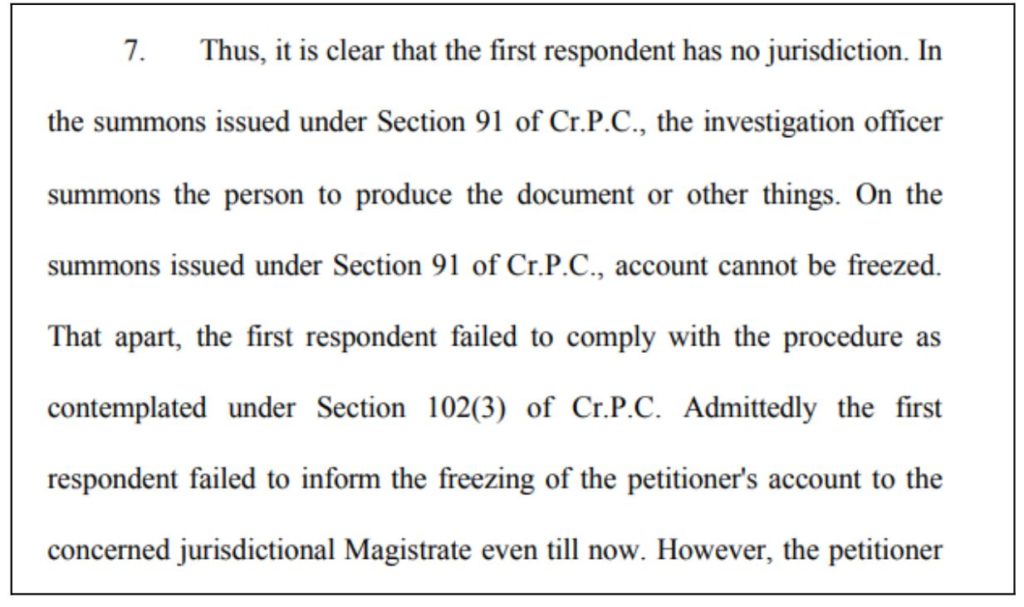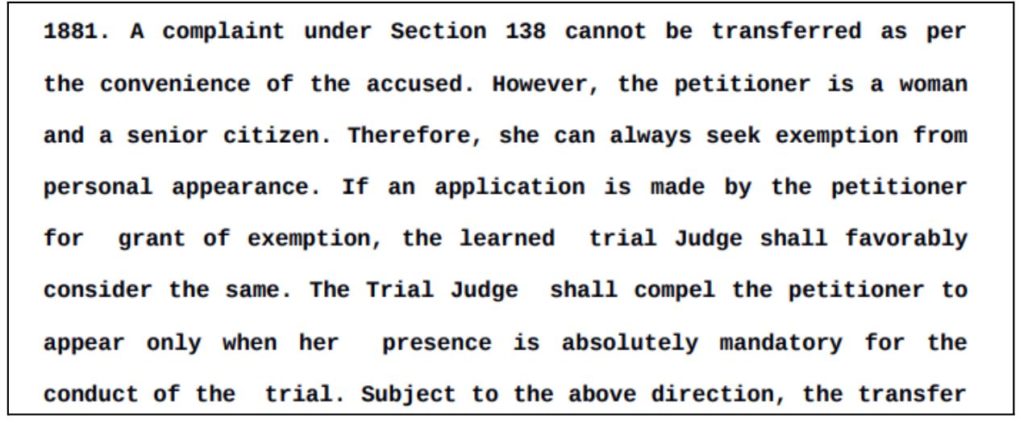In this week’s review of Court Judgments, we look at SC’s judgment upholding the validity of 10% EWS reservations, Karnataka HC’s comments that POCSO is a special law which overrides personal laws, Madhya Pradesh HC’s rephrasing of its judgement on reducing a rape-convict’s sentence, Madras HC’s saying that police has no jurisdiction to freeze bank accounts among others.
SC: 10% Reservation in Government Jobs and Education for Economically Weaker Section (EWS) is Valid
In Janhit Abhiyan vs. Union of India with 32 connected matters, several pleas were filed in the Apex Court challenging the constitutional validity of the 103rd amendment to the Constitution, 2019 which introduced 10% reservation, in addition to the existing reservations, for the economically weaker sections (EWS) among the unreserved categories, in admissions and government jobs. The matter was heard by a 5-judge bench comprising Chief Justice of India UU Lalit, Justices Dinesh Maheshwari, S Ravindra Bhat, Bela M Trivedi, and JB Pardiwala. While Justices Dinesh Maheshwari, Bela Trivedi and JB Pardiwala upheld the 103rd Constitution Amendment, Justice S Ravindra Bhat wrote a dissenting judgment to strike it down which was concurred by the Chief Justice of India UU Lalit. With a 3:2 majority, the validity of the amendment was upheld.
According to Justice Maheshwari, poverty was not merely a state of stagnation but a point of regression. Referring to the UN’s resolution to “end poverty in all its forms everywhere” and to past judgements like Kesavananda Bharati vs. State of Kerala and Anr, M.R. Balaji and Ors. vs. State of Mysore and Ors., State of Kerala and Anr. vs. N.M. Thomas and Ors., he held that affirmative action for the economically disadvantaged was necessary to eliminate socioeconomic inequalities. He added that the amendment in question concerned the requirements of those economically weaker sections who did not get the benefit of affirmative action like reservation, which is being accorded to the other classes of citizens like SEBCs/OBCs/SCs/STs. He concluded by stating that reservation is an instrument to include not only socially and educationally backward classes but also any class/section which is disadvantaged including the economically disadvantaged. Thus, including economic criteria in reservation does not violate the essence or damage the basic structure of the Indian Constitution.

Justice Trivedi noted that the amendment paved way for a separate class of “economically weaker sections of the citizens” from the general/unreserved class, without affecting the special rights of reservations provided to the Scheduled Caste/Scheduled Tribe and backward class of citizens covered under Article 15(4), 15(5) and 16(4). Hence, excluding them from the benefits for “economically weaker sections of the citizens” in the amendment was not discriminatory or violative of the equality code.
According to Justice Pardiwala, the economic backwardness in India is not confined only to those who are covered by Article 15(4) or Article 16(4) of the Constitution. Only a small percentage of the population is above the poverty line and denying higher education opportunities and employment to the economically backward is to deny those who are qualified and deserving. Further, if economic advancement may be considered to negate social disadvantages from the OBCs, the converse can also be considered to grant reservation to the economically disadvantaged.
On the other side, Justice Bhat and Chief Justice Lalit held that reservation is a powerful tool to enable equal access and opportunity, and so an economic basis for the reservation was permissible. However, excluding other disadvantaged classes like SCs/ STs/OBCs on grounds that they already have reservations was heaping injustice based on their past disability. They added that the entire exclusionary principle is Orwellian as all are entitled to be considered regardless of their caste or class but only those who belong to other classes or castes would be considered and socially disadvantaged classes would be ineligible.

Karnataka HC: POCSO is a special law that overrides personal laws
A 27-year-old Muslim man was arrested for having married a 17-year-old girl. The girl was found to be pregnant when she had come for a medical check-up at a primary health centre. The sub-inspector of the police lodged a complaint against the petitioner since the girl was a minor. He was booked under the Prohibition of Child Marriage Act, 2006 and POCSO Act. In Aleem Pasha vs. State and another, the petitioner appealed for bail on grounds that under Mohammedan Law, puberty is considered for marriage and normal puberty age is treated as 15 years and so there was no offence of child marriage committed since the girl had attained puberty.
However, the High Court Bench of Justice Rajendra Badamikar dismissed the arguments stating that the POCSO Act is a Special Act and that it overrides personal law. As per POCSO Act, the age for involving in sexual activities is 18 years. At the same time, the Court noted that the victim was aged 17 years and was capable of understanding things. Since the victim did not raise any objections, it was evident that she was consenting though under the influence of her parents. The bail was granted provided he would not tamper with the prosecution witnesses.

MP HC: Rephrased its judgement on reducing a rape convict’s sentence
The Indore Bench of Madhya Pradesh High Court, comprising of Justice Subodh Abhyankar and Justice S.K.Singh reduced the sentence of a rape convict from life imprisonment to 20 years of imprisonment on the ground that he was kind enough to not kill the 4-year-old victim after the heinous act in Ramu @ Ramu Singh vs. State of MP. This case was explained in detail earlier when the judgement was delivered.

The MP High Court’s remark was criticized widely since then. After a week, the MP High Court division bench headed by Justice Subodh Abhyankar modified the judgment dated 18 October 2022. In the modified judgement, the bench highlighting that the mistake was inadvertent in the context, rephrased the words in the paragraph to reduce his imprisonment since he had not caused any other physical injury to the victim.

Madras HC: Police has no jurisdiction to freeze bank accounts
In Sahil Raj vs. State of Tamil Nadu and others, the original complainant was cheated by an anonymous person through WhatsApp. The complainant was offered a part-time job by the anonymous person and in return, he was made to pay over Rs. 5.58 lakhs in 26 installments through a link.
The petitioner in this case (not accused in the previous case), was engaged in the business of trading cryptocurrency on different exchanges. He had received an order of purchase for a sum of Rs. 89,000 and released the said cryptocurrency within 15 days. Raising allegations that he had fraudulently collected the money and used it to make the purchase and believing that he was engaged in similar crimes, the Inspector of Police directed the bank authorities to freeze the petitioner’s account. The fraudster in the original case had transferred some money to the petitioner’s account.
The Madras High Court Bench of Justice GK Ilanthiraiyan held that the police have no jurisdiction to freeze bank accounts while issuing summons under Section 91 of CrPC. While issuing such summons, the Bench said that the investigating officer can only summon a person to produce the document or other things, and not freeze bank accounts. It also noted that the police had failed to inform the jurisdictional Magistrate about the freezing of the account as was required under Section 102(3) CrPC. The court directed the petitioner to deposit the amount in the form of a fixed deposit in favour of the crime number and directed the police to permit the petitioner to use his bank accounts.

SC: Presence of senior citizen woman in cheque bounce case is needed only when it is mandatory for conducting trial
In S Nalini Jayanthi vs. M. Ramasubba Reddy, the petitioner is an accused in a complaint filed by the respondent invoking Section 138 of the Negotiable Instruments Act, 1881. The accused filed a transfer petition to seek the transfer of a cheque bounce case. While a complaint under Section 138 cannot be transferred as per the convenience of the accused, the Supreme Court’s Single Bench of Justice Abhay S. Oka noted that the petitioner is a woman and a senior citizen and observed that she can always seek exemption from personal appearance. Dismissing the appeal, the judge added that if the petitioner makes an application for a grant of exemption, then the trial judge should consider it favourably and can compel the petitioner to appear only when her presence is absolutely necessary for conducting the trial.

Featured Image: Review of Court Judgments


